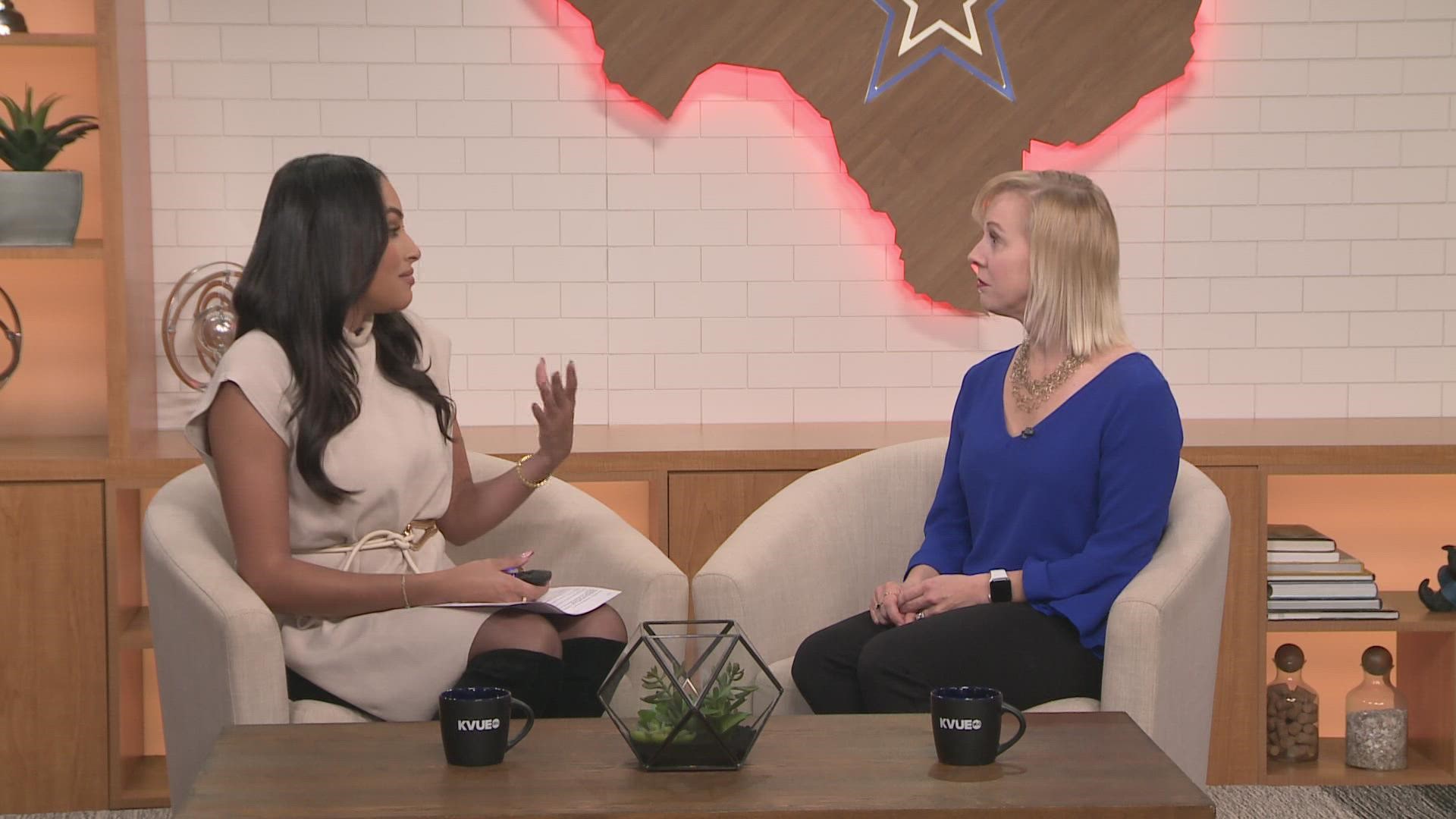AUSTIN, Texas — The holidays are often referred to as the most wonderful time of the year, but for those that struggle with an eating disorder, it's often the worst time of year.
Adrien Paczosa, RD, LD, CEDRD-S, is the chief clinical officer at Nourish in Austin. Nourish is a nationwide, virtual-first nutrition group focused on addressing America's healthcare crisis through greater access to nutrition care.
Paczosa said when it comes to the holidays, one of the biggest misconceptions about people with an eating disorder is that society depicts specific eating disorders as a body type.
"I want everybody to remember that eating disorders come in all body shapes and sizes. Somebody might be struggling internally and not be able to express what's going on," said Paczosa.
Eating disorders can vary between people and it might be related to body image, a certain food or something completely not related to food. According to Paczosa, the easiest thing that family members or those that are struggling with eating disorders can do is to have a plan and talk with loved ones before the holidays come around.
Going into various holiday parties and gatherings, experts recommend that people with eating disorders check in with their dietitian before gatherings and come up with a plan to make sure they have support.
"Make sure that you have a plan of, what do you want to actually do during that meal? I think one of the best things is to have an exit strategy. Sometimes we just get too overwhelmed in those situations. How are you going to leave? How are you going to take care of yourself and plan some great selfcare after?" said Paczosa.
Paczosa said having an eating disorder is very personal, so one person's trigger may be different than someone else's.
"I think one of the things that a lot of our dietitians at Nourish do is, we like to have a no diet, no body image talk around the table. So that's one of the biggest things we really educate on is, let's make mealtime fun, exciting, have other conversations than about diets or bodies," said Paczosa.
If you find yourself at a table where someone may have an eating disorder but hasn't spoken out about it, there are some warning signs. These often include becoming really quiet, going inward or outward. Additionally, when it comes to the conversation around the table, keep it light and positive.
"I think one of the obvious ones is, let's not comment about anybody's body. And even if it comes from a place of goodness of, 'Oh, you look so healthy,' that probably is the worst comment ever. So commenting or having conversations that are neutral, 'How's school going? How are how's work?' Something that is very neutral, not related to body, not related to the eating disorder is actually really appropriate," explained Paczosa.
This rule applies to everyone regardless of age, as Paczosa's patients that are struggling with eating disorders and mental health can be anywhere from five to 65 years old.
The National Eating Disorder Association has a hotline (1-800-931-2237) for people to call along with various resources at Nourish. More information on where to find a provider can be found here.

